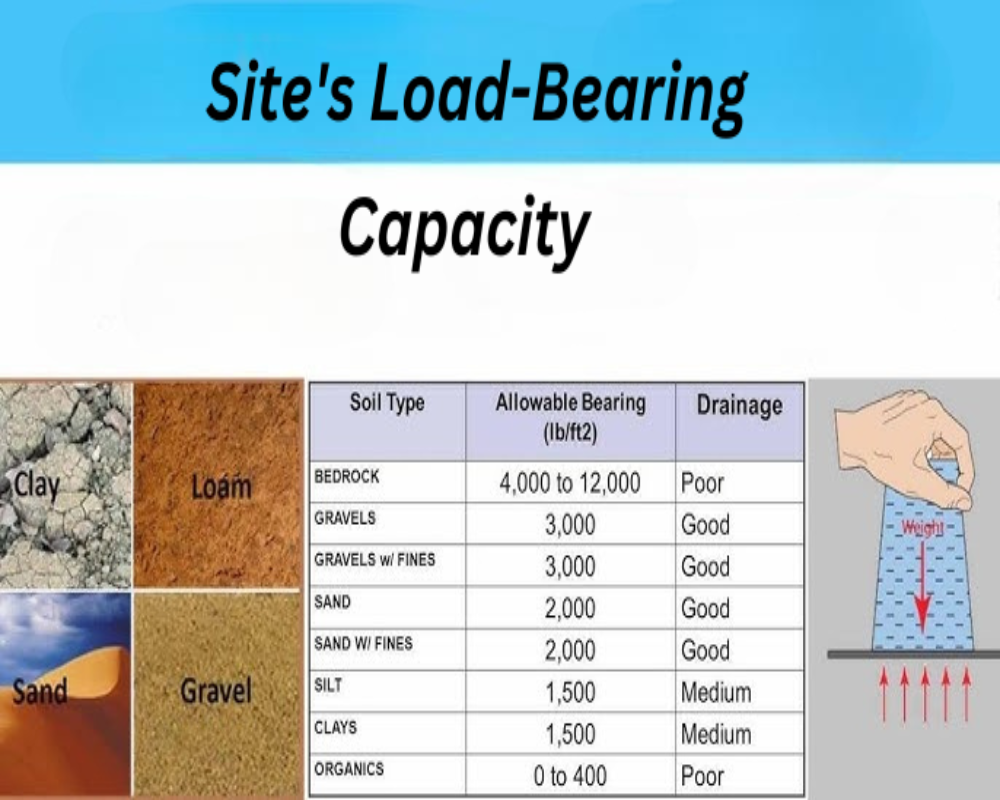Determined by Geotechnical Soil Testing
The site’s load-bearing capacity refers to the maximum pressure the soil can safely support without risk of settlement or failure. It is measured in pounds per square foot (psf) and determined through geotechnical investigations such as borehole sampling and laboratory analysis.
- Common soil types have capacities ranging from 1,500 psf (soft clay) to 6,000+ psf (dense gravel or rock)
- A geotechnical report provides foundation design recommendations and soil classifications
- Soil bearing values must comply with local building code requirements and safety factors
Influenced by Soil Type, Moisture, and Depth
Soil composition (clay, sand, silt, gravel), groundwater levels, and depth of stable strata directly affect the site’s ability to support structural loads. Poor soil may require modification or special foundation systems.
- Wet or loose soils reduce bearing strength and may require soil stabilization
- Expansive clays or organic material are unsuitable for standard foundations
- Strong, dry, well-compacted soils offer higher load capacity and construction efficiency
Verified Through Site-Specific Engineering Reports
To confirm the site’s load-bearing capacity, a licensed geotechnical engineer must conduct a formal soil investigation and issue a written report.
- Includes boring logs, moisture content, density, and shear strength
- Recommends foundation types (e.g., spread footing, deep pile, mat slab)
- Required before structural design and foundation permit approval


